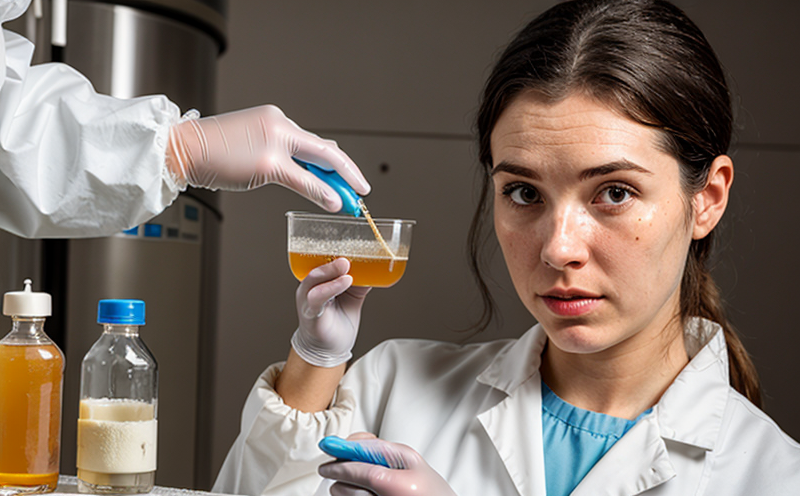ISO 16000-17 Fungal Spore DNA-Based Identification Testing
The ISO 16000-17 standard outlines a robust framework for the identification of fungal spores using DNA-based methods. This service is particularly valuable in environments where accurate and reliable fungal spore identification is critical, such as indoor air quality testing, hospital hygiene monitoring, and environmental assessments.
Incorporating advanced molecular biology techniques, this test provides precise and reproducible results that are essential for ensuring compliance with regulatory standards. The process begins with the collection of air samples using specialized sampling devices like Andersen settle plates or Burkard impactors. These specimens are then processed in our state-of-the-art laboratories to extract DNA from the fungal spores.
The extracted DNA is subjected to polymerase chain reaction (PCR) amplification and subsequent sequencing, allowing for the identification of specific fungal species based on their unique genetic signatures. This method ensures a high degree of accuracy and specificity, making it an indispensable tool in various sectors including healthcare, construction, and research.
Our service includes comprehensive reporting that details the species identified along with quantitative data on spore concentration levels. This information is invaluable for stakeholders involved in maintaining indoor air quality or assessing potential health risks associated with fungal contamination. By leveraging this advanced technology, we offer a reliable solution for addressing complex biological challenges.
| Step | Action |
|---|---|
| 1 | Capture air samples using appropriate devices |
| 2 | Analyze samples for DNA extraction |
| 3 | Perform PCR amplification and sequencing |
| 4 | Identify fungal species based on genetic data |
| 5 | Provide detailed reports with findings |
The ISO 16000-17 standard is widely recognized for its stringent requirements and ensures that our testing meets the highest quality standards. This service not only aids in compliance but also assists in proactive management of potential health hazards posed by fungal contamination.
Our dedicated team of experts ensures each step of the process adheres to international best practices, providing clients with confidence in their results. Whether you need routine monitoring or emergency assessments, our ISO 16000-17 services can help maintain a safe and healthy environment.
Scope and Methodology
The scope of the ISO 16000-17 Fungal Spore DNA-Based Identification Testing includes:
- Capture of air samples for fungal spores
- DNA extraction from collected samples
- PCR amplification and sequencing
- Identification of specific fungal species
- Data analysis and reporting
The methodology involves the use of specialized sampling devices, DNA extraction kits, PCR machines, and sequencing equipment. Compliance with ISO standards ensures that our processes are consistent and reliable.
- Accurate identification of fungal species through advanced molecular techniques
- Comprehensive reporting tailored to client needs
- State-of-the-art laboratory facilities ensuring precision and reliability
- Experienced staff with expertise in biological testing
- Quick turnaround times for results
- Robust quality control measures to maintain accuracy
We pride ourselves on offering services that go beyond mere compliance, providing valuable insights into fungal contamination levels. Our commitment to excellence ensures that you receive accurate, actionable information that can inform decision-making processes.
Environmental and Sustainability Contributions
- Reduction of indoor air pollutants by identifying and addressing sources of fungal contamination
- Support for sustainable building practices through continuous monitoring of air quality
- Promotion of healthier living environments, contributing to improved public health
- Facilitation of research into fungal biology and its impact on human health
Our service plays a crucial role in promoting environmental sustainability by helping to maintain healthy indoor spaces. By identifying and mitigating risks associated with fungal contamination, we contribute positively to both the environment and society.





